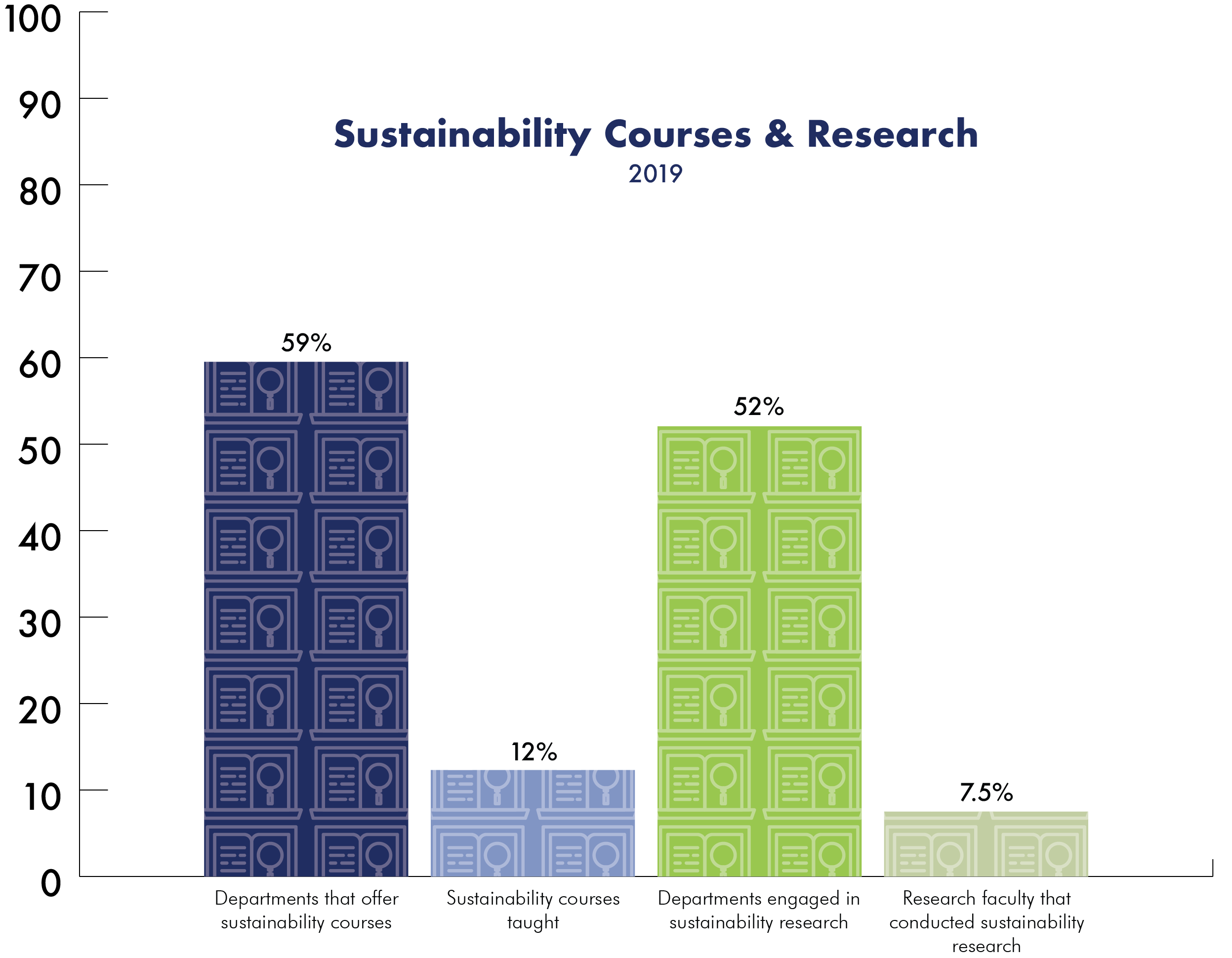The most effective way that Emory can create a sustainable future is educating future leaders. In an annual sustainability literacy assessment, 89% of students report an increase in sustainability-related knowledge and 92% reported an increase in their awareness of social justice issues during their time at Emory.
Emory faculty are encouraged to integrate sustainability into formal coursework and research, and they are supported with training through Emory’s nationally-recognized Piedmont Project. Students have the opportunity to discover sustainability issues across a variety of subjects, earn a sustainability or sustainability sciences minor or related certificate and conduct independent research, all designed to foster future leaders who understand and value sustainability.
So Far
- Emory faculty have created or modified more than 400 courses in 40 academic departments that are related to sustainability. Sixty-one percent of academic departments have sustainability course offerings across all graduate schools and the College.
- Emory has developed three minors in sustainability and dozens of degrees, certificates, and concentrations for both undergraduate and graduate students that teach students sustainability as an integrated concept.
- Emory has hosted the national faculty development program for the Association for the Advancement of Sustainability in Higher Education for more than a decade, supporting more than 250 faculty from across the country to integrate sustainability into their curriculum.
- Emory students can participate in immersive experiences related to sustainability, such as paid internships, study abroad programs, and being a student delegate to the UN Climate Conference of the Parties.
 Click image for a larger view
Click image for a larger view
Every three years, Emory conducts an inventory of University courses and research that include sustainability as a component, as a way to measure how sustainability concepts are integrated throughout the curriculum. As more departments offer sustainability courses and conduct sustainability research, Emory’s approach to sustainability education becomes more comprehensive and diverse.
Today
59%
of departments have sustainability courses.
52%
of departments conduct sustainability-related research
250+
faculty have graduated from the renowned Piedmont Project
Tomorrow
We plan to integrate sustainability into the classroom in purposeful ways in the coming years. By 2025:
- Increase the number of sustainability-related courses taught across the University by 25 percent.
- Further integrate sustainability into academic programs, degrees and experiential learning opportunities to assure universal sustainability literacy.
- Support campus-based sustainability research activities with a data hub and interdisciplinary laboratory for action research projects by 2025.
